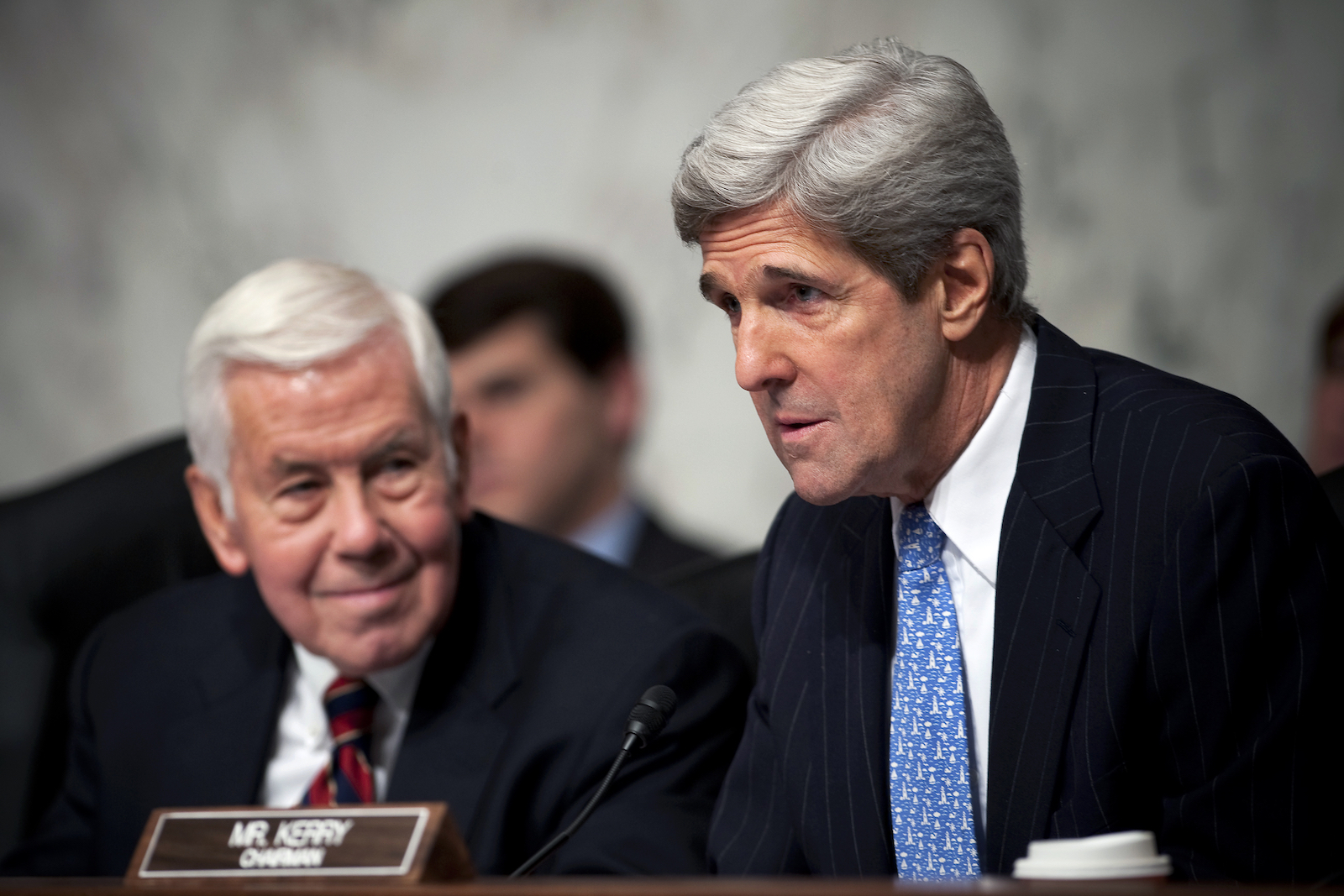
Brief Thoughts on the Kerry Nomination and U.S.-Lanka Relations
President Obama is still working on remaking his foreign policy and national security team, but it looks like John Kerry will be the next Secretary of State. Inside Washington, John Kerry has been a leading voice on foreign policy for decades. As a member of the Senate Foreign Relations Committee for twenty-seven years, John Kerry has built up a vast network of contacts abroad. John Kerry understands the politics of the Middle East. And he has already traveled extensively for the Obama administration – going to places like Afghanistan and Pakistan.
Susan Rice wisely withdrew her name from consideration. That was about more than Benghazi. She has the brains to be Secretary of State, for sure. Rice’s problem is that she’s not diplomatic, at all really. The late Richard Holbrooke will be remembered for his arrogance and vanity. Nonetheless, one doesn’t need to have a PhD from Oxford (like Susan Rice) to understand that pointedly displaying one’s middle finger at Holbrooke during a meeting of senior State officials is probably not a good idea. Besides, the diplomacy business can be far more tedious than State department meetings – just ask Hillary Clinton.
Senators on both sides of the aisle like and respect John Kerry. Obama will have to spend almost no political capital on this pick and Kerry will be confirmed easily. But what about John Kerry’s foreign policy in South Asia? What does it mean for US-Lanka relations? Reporters and journalists of all stripes have recently been asking those two questions and, unfortunately, I think many people have been missing a central point.
When it comes to foreign policy, Barack Obama is a control freak. He has embraced a Nixonian style of foreign policy planning – meaning power is very centralized. Decisions are made by a small group of White House insiders, Obama’s inner circle. Hillary Clinton has been an outstanding Secretary of State; she has performed her duties with dignity and grace. But she has principally served as an implementer of policy, not a strategist. It is true that Hillary Clinton was an outspoken proponent of US intervention in Libya, as were Susan Rice and Samantha Power. But even Libya was not considered a preeminent foreign policy concern by this White House. It frequently looked like events were passing Obama by as one official later noted that the US was (oxymoronically) “leading from behind” in Libya.
With regard to Clinton’s tenure at State, Aaron David Miller expounds upon Obama’s need for control. “But did she own and dominate — on behalf of the president — a single issue of strategic consequence pertaining to peace or war? There were some issues that the military, CIA and White House appropriately dominated — think Afghanistan, Iraq, and the war on terrorism. But on others — Arab-Israeli peacemaking, the U.S.-Israel relationship, and the big think on Iran strategy — the White House exclusively dominated discussions where the State Department could have played a central role.”
Barack Obama trusts John Kerry and, importantly, Kerry did not challenge Obama for the Democratic nomination in 2008. Perhaps even more importantly, Kerry is not married to Bill Clinton. It’s possible that Obama will let a Secretary Kerry run with a few issues of his own, although Obama will still maintain a tight grip on the most important foreign policy issues. Here’s the rub: At this point, it’s hard to know if Obama would want to set Sri Lankan policy himself or whether he’d be willing to hand that off to John Kerry and his staffers. Sri Lanka will never be America’s foremost concern in South Asia, but that doesn’t mean diplomatic relations with Washington are not important. They are important; it’s just not clear how important President Obama perceives that relationship to be.
John Kerry is a paragon of Washington’s foreign policy establishment. If John Kerry were allowed to take the reins on Sri Lankan policy, it’s likely that military and security ties would matter more than human rights. This isn’t to say that John Kerry doesn’t care about human rights; he most certainly does. But he probably cares less about human rights in the context of Sri Lanka. John Kerry knows how the war ended; he also fully understands why the US supported the Government of Sri Lanka (GoSL) to defeat the LTTE.
The Tamil National Alliance (TNA) is heading to Washington soon. Already, rumors are flying about what might happen at the Human Rights Council’s (HRC) 22nd session in Geneva. During TNA’s visit, US officials will probably take the opportunity to establish some clear parameters in terms of expectations, advocacy and what’s even feasible in the near-term.
The continued polarization of American politics is discouraging. Now, Obama and others are busy trying to avert the fiscal cliff so that the US can begin to get its economic house in order. In spite of all the dysfunction, the world of Washington is still a fascinating place – not least because the American Rome remains the most important city in the world when it comes to international politics. During the next four years, it will be interesting to see how Foggy Bottom will fare under John Kerry’s leadership and what that might mean for US-Lanka relations.

